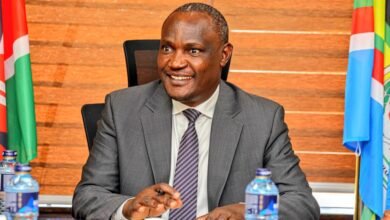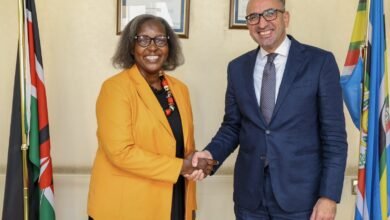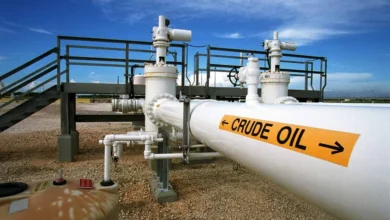
The year 2024 will be a busy and crucial one for African politics, as many countries will hold general elections to choose their leaders and representatives. Some of these elections will be highly contested, while others will be more predictable. Some will be peaceful, while others may face violence and instability. Some will be democratic, while others may be marred by fraud and repression.
Here is a brief overview of the upcoming elections in Africa in 2024, and what they mean for the continent and the world.
Ghana: A Tight Race Between Two Rivals
Ghana will hold its presidential and parliamentary elections on 7 December 2024, in what is expected to be a close contest between the incumbent President Nana Akufo-Addo of the New Patriotic Party (NPP) and his main challenger, former President John Mahama of the National Democratic Congress (NDC). The two candidates have faced each other twice before, in 2012 and 2016, with each winning once. Ghana is widely regarded as one of the most stable and democratic countries in Africa, and has a history of peaceful transfers of power.
However, the 2024 elections may pose some challenges, such as the impact of the COVID-19 pandemic, the management of the electoral commission, the role of the security forces, and the potential for post-election disputes and violence.
South Africa: A Test for the ANC’s Dominance
South Africa will hold its national and provincial elections in 2024, in which the ruling African National Congress (ANC) will seek to maintain its majority in the National Assembly and the provincial legislatures. The ANC has been in power since the end of apartheid in 1994, but has faced growing criticism and discontent over its performance, especially on issues such as corruption, unemployment, inequality, and service delivery.
The main opposition parties, the Democratic Alliance (DA) and the Economic Freedom Fighters (EFF), will try to capitalize on the ANC’s weaknesses and offer alternative visions for the country.
The 2024 elections will also be the first ones under the new electoral system, which will introduce a mixed-member proportional representation system that will allow voters to choose individual candidates as well as parties.
Algeria: A Chance for a New Beginning
Algeria will hold its presidential election in 2024, following the resignation of former President Abdelaziz Bouteflika in 2019 after months of mass protests against his bid for a fifth term. The interim President, Abdelmadjid Tebboune, who was elected in a controversial and low-turnout election in 2019, has promised to implement political and economic reforms, and to hold a dialogue with the opposition and the civil society.
However, many Algerians remain skeptical and dissatisfied with the regime, and continue to demand a radical change of the system. The 2024 election will be an opportunity for Algeria to break away from the legacy of the old guard, and to embrace a more democratic and inclusive future.
Mali: A Hope for Peace and Stability
Mali will hold its presidential election in 2024, after a military coup in 2020 that ousted former President Ibrahim Boubacar Keita, who was accused of corruption and mismanagement. The coup leaders have formed a transitional government, led by retired Colonel Bah Ndaw as president and Colonel Assimi Goita as vice president, and have pledged to organize free and fair elections within 18 months.
The transition faces many challenges, such as the ongoing security crisis in the north and the center of the country, where Islamist militants and ethnic militias are active, the economic and social impact of the COVID-19 pandemic, the pressure from the regional and international community, and the demands of the opposition and the civil society for more participation and accountability.
Senegal: A Referendum on Macky Sall’s Leadership
Senegal will hold its presidential election on 25 February 2024, in which the incumbent President Macky Sall of the Alliance for the Republic (APR) will seek a third term, despite a constitutional limit of two terms.
Sall has argued that the limit does not apply to him, as it was introduced after he was elected for the first time in 2012. Sall has been praised for his economic and infrastructure development, but has also been criticized for his authoritarian tendencies, such as the imprisonment and disqualification of his main rivals, the suppression of dissent, and the manipulation of the judiciary and the electoral commission. The 2024 election will be a referendum on Sall’s leadership, and a test for Senegal’s democracy and stability.
Other Elections in 2024In addition to the above-mentioned countries, several other African countries will hold general elections in 2024, such as:-
Mauritania, where President Mohamed Ould Ghazouani will seek a second term, after winning the 2019 election that marked the first peaceful transfer of power in the country’s history.
– Guinea-Bissau, where President Umaro Sissoco Embalo will seek a second term, after winning the 2019 election that ended a long political crisis in the country.
– Tunisia, where President Kais Saied will seek a second term, after winning the 2019 election that reflected the disillusionment of the Tunisian people with the political establishment.
– Chad, where President Idriss Deby will seek a seventh term, after winning the 2020 election that was boycotted by the opposition and marred by violence and repression.
– Burkina Faso, where President Roch Marc Christian Kabore will seek a second term, after winning the 2020 election that was overshadowed by the security and humanitarian crisis in the country.- South Sudan, where President Salva Kiir will seek a third term, after postponing the 2018 election due to the civil war that has ravaged the country since 2013.
– Rwanda, where President Paul Kagame will seek a fourth term, after winning the 2017 election with 99% of the vote, following a constitutional amendment that allowed him to extend his rule until 2034.
– Namibia, where President Hage Geingob will seek a second term, after winning the 2019 election with the lowest margin ever for the ruling SWAPO party, amid economic and social challenges.
– Comoros, where President Azali Assoumani will seek a second term, after winning the 2019 election that was disputed by the opposition and denounced by the international observers.
– Botswana, where President Mokgweetsi Masisi will seek a second term, after winning the 2019 election that was challenged by the former President Ian Khama, who defected from the ruling BDP party and formed a new opposition party.
– Mozambique, where President Filipe Nyusi will seek a second term, after winning the 2019 election that was marred by fraud and violence, and amid a growing insurgency in the northern province of Cabo Delgado.
– Mauritius, where Prime Minister Pravind Jugnauth will seek a second term, after winning the 2019 election that was marked by allegations of corruption and nepotism, and by the emergence of new political forces.
The year 2024 will be a decisive one for Africa, as many countries will hold general elections that will shape their political and economic trajectories for the years to come.
These elections will also have implications for the regional and international relations, as well as for the global issues such as peace, security, development, democracy, and human rights.






Thank you for your sharing. I am worried that I lack creative ideas. It is your article that makes me full of hope. Thank you. But, I have a question, can you help me?
Can you be more specific about the content of your article? After reading it, I still have some doubts. Hope you can help me.